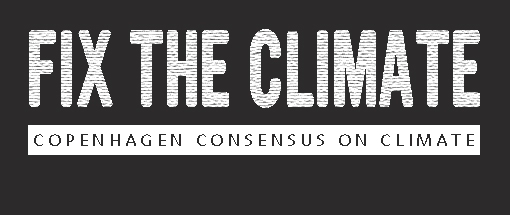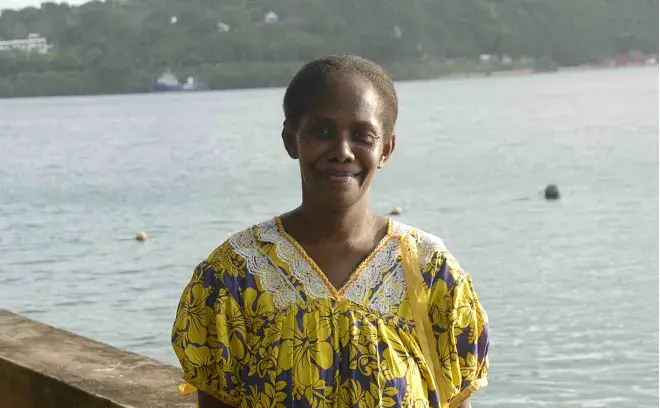Torethy Frank, Vanuatu
The tiny island nation of Vanuatu speaks with a big voice on global warming, calling for larger countries to make immediate carbon cuts.
In a warning often repeated by environmental campaigners, the Vanuatuan president told the United Nations that entire island nations could be submerged. "If such a tragedy does happen," he said, "then the United Nations and its members would have failed in their first and most basic duty to a member nation and its innocent people."
Torethy Frank, a 39-year-old woman carving out a subsistence lifestyle on Vanuatu's Nguna Island, is one of those "innocent people." Yet, she has never heard of the problem that her government rates as a top priority. "What is global warming?" she asks a researcher for the Copenhagen Consensus Center.
Torethy Frank has more immediate concerns—problems that are not spoken about on the world stage, and that do not attract the attention of the media or environmental advocates.
Torethy and her family of six live in a small house made of concrete and brick with no running water. As a toilet, they use a hole dug in the ground. They have no shower and there is no fixed electricity supply. Torethy's family was given a battery-powered DVD player but cannot afford to use it.
Three of Torethy's four teenage children have never spent a day in school. The eldest attended classes on another island, which cost Torethy and her husband 12,000 vatu ($110) a year, but she now makes him stay home because "too many of the kids at the school were smoking marijuana."
Three years ago, an outbreak of malaria ravaged Torethy's village, Utanlang. The mosquito-borne illness is a big problem in Vanuatu, although aid from the Global Fund to Fight AIDS, Tuberculosis and Malaria is helping. This deadly disease causes fever, headaches and vomiting, and can disrupt the blood supply to vital organs.
One small clinic in Utanlang provides basic medicines like painkillers and bandages. For real medical care, Torethy must travel to the capital, Port Vila. In perfect conditions, that involves a 30-minute boat trip and then a two-hour car ride. Because the villagers are too poor to own any boats other than outrigger canoes, it can take up to five hours.
To get by, Torethy's village sells a few fish, fruit and baskets in mainland Vanuatu. But after paying for transport, little money is made. Torethy has learned that "it's best to return with no money and nothing new," because otherwise other villagers ask for their share.
The government, too, takes its cut in the form of tax. "But it doesn't give anything back," Torethy says. "No education, no power, no water, no transportation, no health care. Why should we pay them?"
Torethy's life would not be transformed by foreign countries making immediate carbon cuts.
What would change her life? Having a boat in the village to use for fishing, transporting goods to sell, and to get to hospital in emergencies. She doesn't want more aid money because, "there is too much corruption in the government and it goes in people's pockets," but she would like microfinance schemes instead. "Give the money directly to the people for businesses so we can support ourselves without having to rely on the government."
Vanuatu's politicians speak with a loud voice on the world stage. But the inhabitants of Vanuatu, like Torethy Frank, tell a very different story.
Researcher: Jessica Patterson


